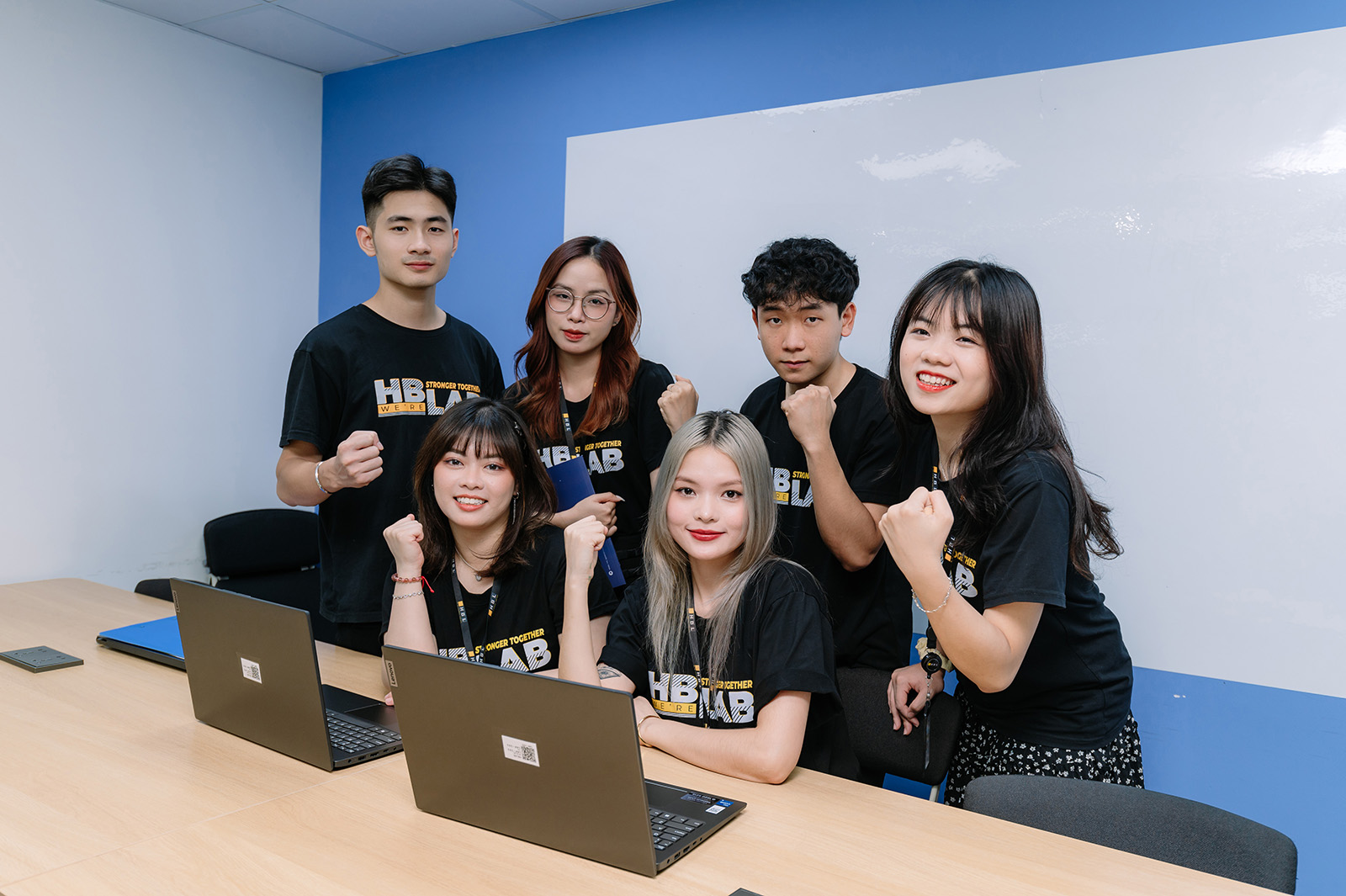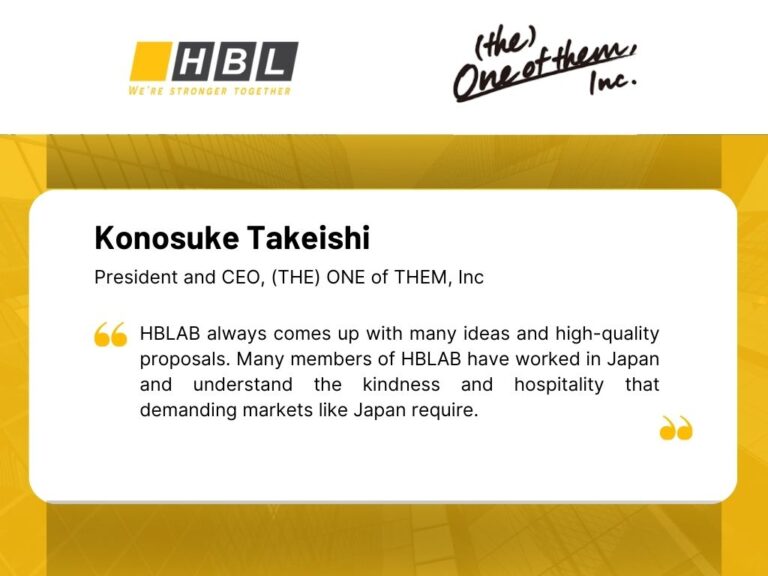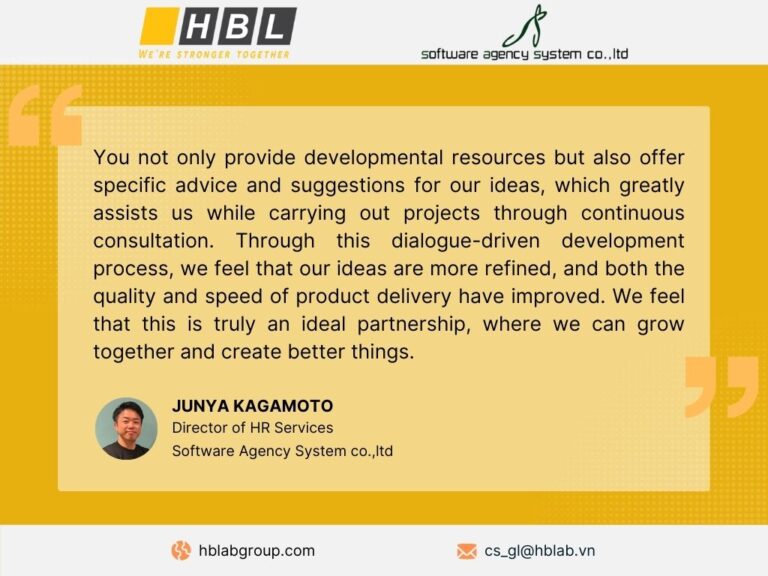Customer Interview: Mr. Takayuki Muto, CEO of Try-hatch Inc.
The Potential of Quality, Speed, and Flexibility Uncovered Through Collaboration with HBLAB
This time, we spoke candidly with Mr. Takayuki Muto, CEO of Try-hatch Inc. (hereinafter referred to as “Try-hatch”), which specializes in system development and digital marketing support for retailers. He shared with us how he first became aware of HBLAB, the history of our collaboration, his evaluation of the partnership, and his expectations moving forward.
HBLAB: First, could you tell us about your business and your future outlook?
Mr. Muto: Try-hatch provides system development and digital marketing support for stores such as restaurants and clinics. It was founded in January 2018, and our main service is MEO Cheki, a tool that manages and analyzes measures for ranking higher on Google Maps (MEO measures). We are currently supporting about 100,000 stores.
Earlier this year, we pivoted our business and are now focusing on SwipeKit, a tool that enables the creation of swipe-type landing pages.
HBLAB: I understand that you first found out about HBLAB through Google search. Could you share your first impression of HBLAB at that time, and what led you to contact us?
Mr. Muto: Up until then, we had worked with several development companies in Japan and Vietnam, but often faced challenges with quality and communication. Since I was visiting Vietnam regularly at the time, I searched for “better companies” and found HBLAB. When I visited Vietnam, I went to the office, met Thao-san and many others, and was left with a very good impression. That became the deciding factor.
HBLAB: You had worked with several offshore development companies in Vietnam before. Could you tell us why you chose HBLAB and what differences or unique characteristics you found compared to others?
Mr. Muto: There are two main reasons.
First, HBLAB specializes in the Japanese market. In Vietnam, many companies take on projects not only from Japan but also from Korea, China, Europe, and other regions. In such cases, cultural and business practice differences often lead to communication gaps. Since HBLAB focuses exclusively on projects from Japan, I felt there were fewer cultural gaps and misalignments when working with Japanese companies.
The second point is the well-organized working environment I observed during my office visit. All staff were using the same design and development tools, and project management methods were standardized. In many other companies, tools and approaches tend to be inconsistent, but this consistency at HBLAB provided great reassurance in terms of both quality and efficiency.
HBLAB: You have been working with us for over a year. Overall, how would you evaluate the quality of the systems we’ve developed, the way projects are managed, speed, communication, technology, and the skills of our personnel?
Mr. Muto: In our first projects, MEO Cheki LITE and GATE, since it was our first time working together, there were challenges in communication and quality. However, HBLAB never gave up when issues arose, always discussing as a team how to improve and acting accordingly. They were flexible enough to respond even outside working hours in emergencies, showing a consistent attitude of “not just finishing the work, but meeting expectations.” As a result, quality improved with each project.
In terms of design, I am very detail-oriented, but in the SwipeKit project, the UI/UX was highly refined from the beginning and required almost no revisions. I was very satisfied.
Among the seven companies we currently work with, I feel HBLAB is the most reliable partner.
HBLAB: Even though there were difficulties in the beginning, why did you continue to assign us new projects?
Mr. Muto: As mentioned before, the biggest reason is the attitude of striving for improvement. Technical skills alone do not create good products. New projects inevitably involve unfamiliar areas, but HBLAB interacts with us in a way that shows they are trying to “make things better.” That attitude gave me confidence, so I entrusted SwipeKit to them as well. In fact, SwipeKit proceeded smoothly even without our engineers intervening, which showed me HBLAB’s strong self-sufficiency.
HBLAB: Over the past year, we started with small projects, and now you’ve entrusted us with larger ones. Could you share the reasons behind that decision?
Mr. Muto: It really comes down to attitude. The willingness to improve quality and keep refining stood out, and that was different from other offshore experiences.
I believe technical skills alone don’t make a good product—it’s not about whether the engineers are Japanese or Vietnamese, but whether they have the mindset of building a product together. With AI and other technologies advancing so quickly, new types of development will continue to emerge. If the mindset is just “we’ll do it because we got the job,” you won’t get good results.
For example, Nga-san once suggested, “Wouldn’t this be better?” and that kind of communication gives me the sense that we are really building together.
In the SwipeKit project, our in-house engineers didn’t have to intervene, yet your team handled everything properly. That gave me confidence and was the reason I expanded the scale of our projects with you.
HBLAB: Are there any areas you’d like HBLAB to improve in the future?
Mr. Muto: Overall, I’m satisfied, but there are a few points that could strengthen our partnership further.
First, improving speed. In the Japanese market, the timing of feature additions and improvements is critical. Depending on competition and market changes, situations often arise where “we need this function by this period.” Having a flexible system to temporarily increase manpower would help us release faster and earlier.
Second, strengthening infrastructure and AI expertise. As our services expand, system load will increase, so it’s important to have people with know-how to maintain performance and stability. For AI, we expect to use it more in our business, so having engineers skilled in that area would broaden the scope of proposals and implementations.
With these improvements, HBLAB could become not just a development partner, but a strategic partner we can rely on long-term.
HBLAB: Do you have any advice for companies considering offshore development?
Mr. Muto: I’ve seen both successes and failures in offshore development. Many failures happen when companies, without understanding the partner well, suddenly entrust them with a large project.
It’s better to start small, test communication, evaluate the partner’s stance, and see compatibility with your company.
Of course, quality and technical skills matter, but what really determines whether you can build a long-term relationship is their attitude—how they approach the project.



